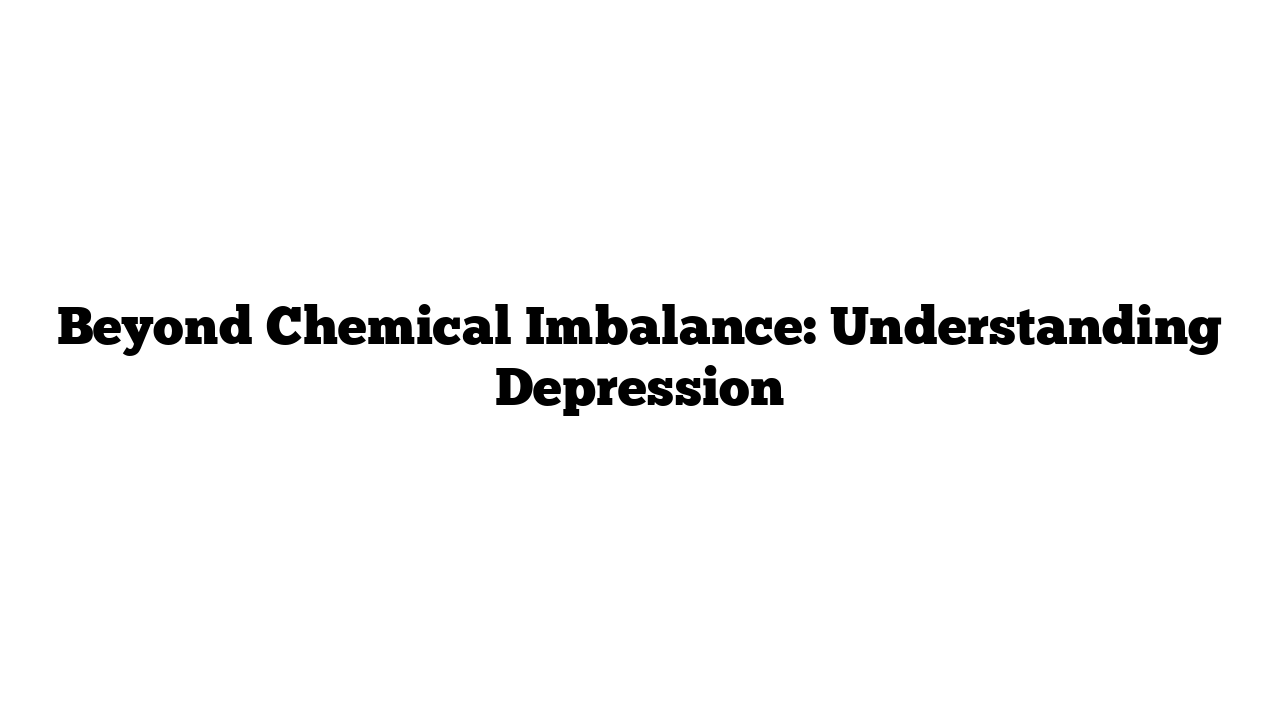What Really Causes Depression?
Depression is a complex mental health condition that affects millions worldwide. Over the past decade, our understanding of what causes depression has evolved significantly. In this article, we’ll explore the multifaceted nature of depression, guided by insights from psychiatrist Dr. Tracey Marks.
The Traditional View: Chemical Imbalance
For years, depression was often viewed as a chemical imbalance in the brain, particularly involving neurotransmitters like serotonin, norepinephrine, and dopamine. According to this theory, low levels of these neurotransmitters lead to depression. The common approach was to use antidepressant medications to increase these chemicals in the brain, particularly through a class of drugs known as SSRIs (selective serotonin reuptake inhibitors).
Evolving Understanding
While we still acknowledge the role of these neurotransmitters, research has shown that the chemical imbalance theory is overly simplistic. Advanced studies using functional MRIs, genetic markers, and even post-mortem analyses have provided deeper insights. What we now recognize is that depression can be linked to abnormal neural connections and a concept known as neuroplasticity.
The Role of Neuroplasticity
Neuroplasticity is the brain’s ability to reorganize itself by forming new connections throughout life. Picture the brain as a complex computer circuit. When you learn new things, new pathways are formed, and unused ones fade away. This concept, coined by psychologist Donald Hebb, emphasizes that “neurons that fire together wire together.”
However, in cases of depression, there’s often a disconnect between certain neural circuits, particularly in the prefrontal cortex and hippocampus, which regulate mood and information processing. Instead of firing in sync, these neurons fail to communicate effectively, resulting in decreased levels of key neurotransmitters. This phenomenon can be described as negative neuroplasticity, where the disruption in neural pathways leads to the symptoms of depression.
Environmental Influences
Importantly, depression is not solely an inborn condition. Environmental factors, particularly stressful life events, can disrupt these neural circuits over time. Understanding this interplay between genetics and environment is crucial for developing effective treatments.
Rethinking Treatment Approaches
Current antidepressant medications are effective for some, but the STAR*D Study revealed that a third of patients do not respond to multiple medication trials. This highlights a significant challenge in treating depression, often referred to as treatment-resistant depression.
Emerging treatments aim to address the root causes rather than just the symptoms. Instead of merely replenishing neurotransmitters, newer medications focus on repairing neural circuits. To illustrate, think of treating depression like treating a bleeding wound. You can replace lost blood or address the wound causing the bleeding. The goal is now to “close the wound” instead of just “replacing the blood.”
The Promise of Psychotherapy
In addition to medication, therapies like mindfulness are gaining attention for their ability to enhance neuroplasticity and strengthen neural connections. Research shows that mindfulness practices can effectively improve symptoms of depression without the use of medication.
Dr. Marks emphasizes that as we improve our understanding of depression and its treatment, we can explore various approaches to help individuals achieve better mental health.
Final Thoughts
Depression is a complex condition influenced by a variety of factors, including brain chemistry and environmental stressors. By embracing a more comprehensive understanding of its causes, we can develop better treatment strategies that address the underlying issues rather than just the symptoms.
To learn more about mental health and effective treatments, please visit medicaltimes.io.
References
- National Institute of Mental Health. “STAR*D Study: A Landmark in Depression Treatment Research.”
- Dr. Tracey Marks YouTube Channel. “What Causes Depression?”
